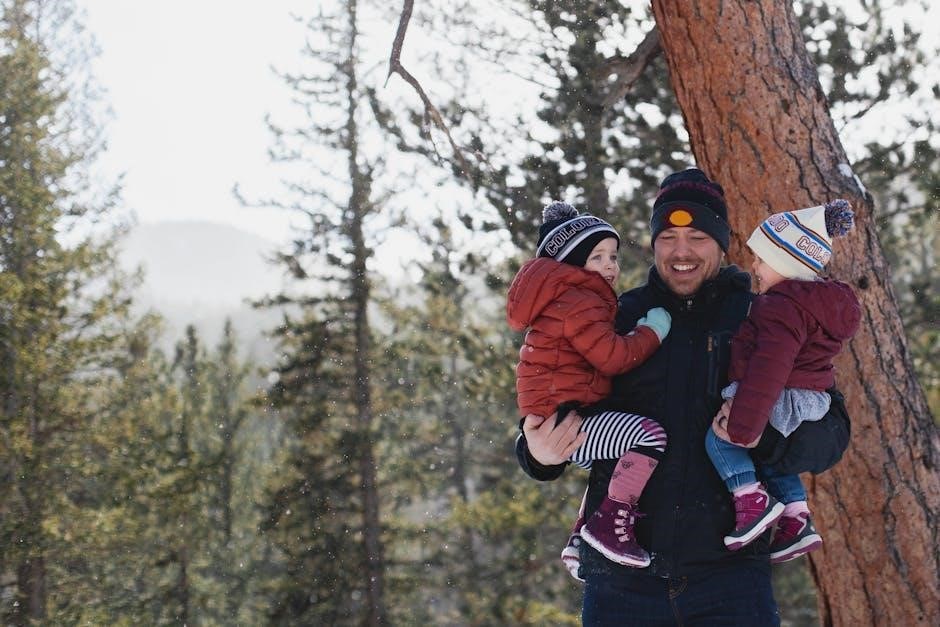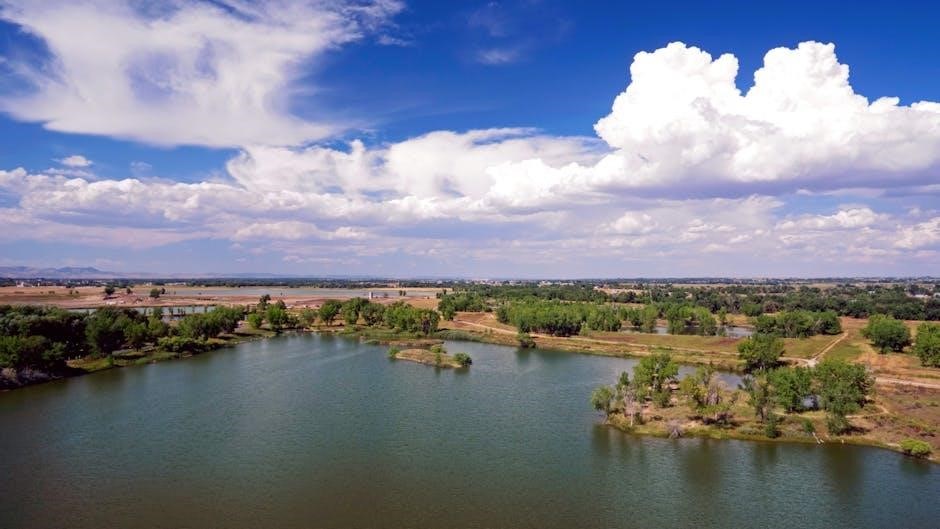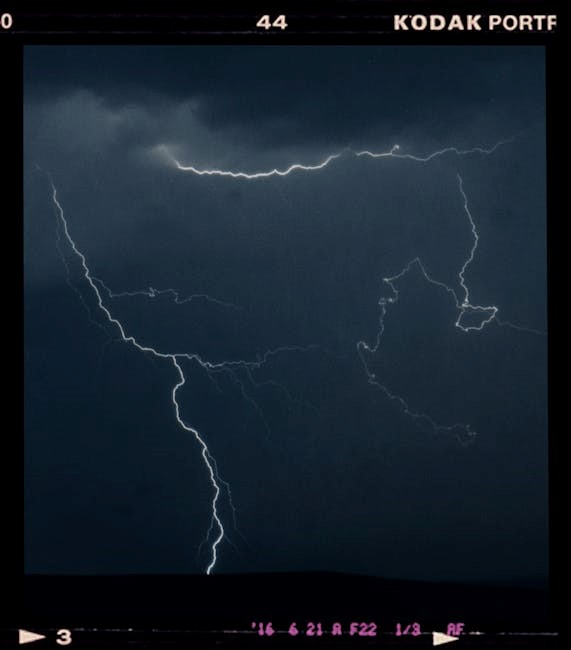What is a Quitclaim Deed in Colorado?
A quitclaim deed in Colorado is a legal document transferring the grantor’s interest in real property without warranties, often used in non-sale transactions like divorces or family transfers.
1.1 Definition and Purpose
A quitclaim deed in Colorado is a legal document that transfers the grantor’s interest in real property to a grantee. Unlike other deeds, it does not guarantee the property is free of encumbrances or claims. Its primary purpose is to convey whatever interest the grantor has at the time of the transfer, making it a simple and quick way to transfer property. It is often used in situations like transferring property between family members, settling estates, or in divorce proceedings where one party relinquishes their claim to the property. The deed does not provide warranties, so the grantee assumes the risk of any existing issues with the title.
1.2 Differences from Other Deeds
A quitclaim deed in Colorado differs from other deeds, such as warranty or grant deeds, as it does not guarantee the grantor has clear title or ownership rights. Unlike warranty deeds, which offer assurances against defects or claims, a quitclaim deed only transfers whatever interest the grantor currently holds. This makes it less protective for the grantee but simpler and faster for transfers between trusted parties, such as family members or in divorce settlements. It is often used for non-sale transactions where the parties know each other and the property’s history, avoiding the need for extensive title warranties.

Key Elements of a Colorado Quitclaim Deed
A Colorado quitclaim deed must include the grantor’s and grantee’s names, a detailed property description, and signatures of both parties, with notarization required for validity.
2.1 Names of Grantor and Grantee
The quitclaim deed must clearly state the full legal names of both the grantor (the person transferring the property) and the grantee (the person receiving the property). The grantor’s name should match the one on the property’s current deed, and the grantee’s name must be spelled correctly to avoid future disputes. If the grantor is married or part of a business entity, their legal status may need to be specified. The grantee’s name should reflect their legal capacity to own property, whether as an individual, trust, or corporation. This section is critical for ensuring the deed’s validity and proper property records.

2.2 Legal Description of the Property
The legal description of the property in a Colorado quitclaim deed must accurately identify the real estate being transferred. It typically includes details like the property’s address, lot number, and boundaries, often referencing a survey or plat map. This description ensures clarity and prevents disputes, as it precisely defines the land being conveyed. The legal description is usually found in the county records or previous deeds and must match the property’s official records. Accuracy is crucial, as errors can lead to legal complications. A professional, such as a real estate attorney or title company, is often involved to verify the description’s correctness.
2.4 Signatures and Notarization
The grantor (seller) must sign the quitclaim deed in the presence of a notary public to validate the document. The grantee’s (buyer’s) signature is not typically required but can be included for acknowledgment. Notarization ensures the grantor’s identity and voluntary execution of the deed. In Colorado, the notary public must adhere to state-specific requirements, including verifying the grantor’s identity and witnessing the signature. Proper notarization is essential for the deed to be legally binding and accepted for recording. Failure to notarize the document can render it invalid, delaying or preventing the transfer of property interest.
How to Create a Quitclaim Deed in Colorado
To create a quitclaim deed in Colorado, obtain a form, include grantor/grantee names, property description, and ensure compliance with state laws. Professional guidance is recommended.
3.1 Preparing the Document
Preparing a quitclaim deed in Colorado involves drafting a document that includes the grantor’s and grantee’s full names, a detailed legal description of the property, and a statement transferring the grantor’s interest. Ensure the property description matches county records for accuracy. The deed must clearly state the intent to transfer ownership “as is,” without warranties. It’s crucial to use the correct legal terminology to avoid disputes. Consulting a real estate attorney can help ensure the document is legally sound and meets Colorado’s specific requirements. Proper preparation is essential to validate the transfer and prevent future legal issues.
3;2 Ensuring Compliance with Colorado State Laws
To ensure compliance with Colorado state laws, a quitclaim deed must meet specific requirements. The document must include the grantor’s and grantee’s full names, a detailed legal description of the property, and the grantor’s notarized signature. Colorado requires the deed to be recorded with the county clerk’s office where the property is located. Filing fees apply, and the process ensures the transfer is publicly documented. Compliance also involves adhering to local recording standards, which may include formatting and content specifications. Consulting a real estate attorney can help verify that all legal requirements are met, avoiding potential issues with the transfer’s validity.
3.3 Notarization Requirements
In Colorado, a quitclaim deed must be notarized to be legally valid. The grantor (seller) must sign the deed in the presence of a licensed notary public, who verifies their identity and ensures the signature is voluntary. The notary then affixes their official seal or stamp. Proper notarization ensures the document’s authenticity and compliance with state laws. Failure to notarize the deed can result in the document being rejected by county recorders or deemed invalid in court. Both parties should retain copies of the notarized deed for their records.
Filing a Quitclaim Deed in Colorado
In Colorado, a quitclaim deed must be filed with the county recorder’s office where the property is located, typically accompanied by a filing fee and basic documentation.
4.1 Where to File the Deed
In Colorado, a quitclaim deed must be filed with the county recorder’s office where the property is located. This ensures the transfer is publicly recorded and provides legal validity. For example, properties in Denver County are filed with the Denver Clerk and Recorder, while those in El Paso County go to the El Paso County Clerk and Recorder. Proper filing is crucial for the deed to be recognized and enforceable. It is recommended to check the specific county’s requirements for submission, as procedures may vary slightly. Timely recording helps avoid disputes and ensures all parties’ rights are protected under Colorado law.
4.2 Filing Fees and Costs
Filing a quitclaim deed in Colorado typically involves a recording fee, which varies by county. Costs generally range between $10 to $30, depending on the county clerk’s office. Additional fees may apply for document preparation, mailing, or expedited services. It’s essential to verify the exact amount with the local county recorder’s office, as fees are non-refundable and must be paid at the time of filing. These costs ensure the deed is officially recorded, providing public notice of the property transfer. Always check with the specific county for the most accurate and up-to-date fee information.
4.3 Processing Time
The processing time for a quitclaim deed in Colorado varies by county. Typically, it takes a few days to a few weeks for the county recorder to process and record the deed. Once recorded, the deed becomes part of the public record, ensuring legal validity. The grantee usually receives a certified copy shortly after recording. Delays may occur due to high volumes or incomplete submissions. It’s essential to follow up with the recorder’s office to confirm the deed’s status and obtain the recorded document for personal records.

Legal Implications of a Quitclaim Deed
A quitclaim deed in Colorado transfers the grantor’s interest without warranties, offering no legal assurances about property title, which can pose significant risks to the grantee.
5.1 Transfer of Property Interest
A quitclaim deed in Colorado transfers the grantor’s current interest in a property to the grantee without any warranties. This means the grantor conveys whatever rights they have at the time of the transfer, which could be full ownership or just a partial interest. Unlike other deeds, it does not guarantee the property is free of encumbrances or claims. The grantee assumes the risk of any existing issues. This type of deed is often used in situations like divorce settlements or transferring property to family members, where a quick, straightforward transfer is desired without the protections typically provided in a warranty deed.
5.2 Lack of Warranties
A quitclaim deed in Colorado does not provide any warranties about the property’s title, meaning the grantor makes no guarantees about their ownership rights or the absence of liens. This differs from a warranty deed, which offers assurances that the title is clear and free of defects. With a quitclaim deed, the grantee assumes the risk of any hidden issues, such as unpaid taxes, easements, or other encumbrances. This lack of protection makes quitclaim deeds unsuitable for most real estate purchases but useful in specific situations, like transferring property between family members or resolving disputes. Legal advice is recommended to understand the risks involved.
5.3 Potential Risks
A quitclaim deed in Colorado poses risks, as it transfers property without warranties. The grantee may inherit hidden debts or claims, and the grantor could later dispute the transfer. Unlike a warranty deed, it offers no legal protection for the grantee. If the grantor had undisclosed liens or encumbrances, the grantee could face financial losses. Additionally, if the grantor retains any rights or interests, it may lead to future disputes. It’s crucial for both parties to understand these risks and consider legal advice to ensure a clear transfer of ownership and avoid potential legal complications down the line.

Using a Quitclaim Deed for Specific Purposes
Quitclaim deeds are often used for transferring property between family members, resolving ownership disputes, or gifting real estate, providing a straightforward method without warranty assurances.
6.1 Transferring Property to Family Members
A quitclaim deed is often used to transfer property to family members, such as children or spouses, as it provides a simple way to convey ownership without warranties. This method is particularly useful in situations where the transfer is a gift or part of an estate plan. It allows the grantor to relinquish any claim to the property, ensuring the transferee gains full ownership. However, it’s important to note that no guarantees are made about the property’s title, so the grantee assumes any existing issues. This approach is cost-effective and avoids the complexities of a traditional sale, making it ideal for familial transactions.
6.2 Divorce and Property Settlements
In Colorado, quitclaim deeds are often used in divorce proceedings to transfer property interests between spouses. This method allows one spouse to relinquish their claim to the marital home or other real estate without warranties. The deed is frequently part of a larger settlement agreement, ensuring a clean division of assets. However, it’s important to note that a quitclaim deed does not absolve the transferring spouse of mortgage or financial obligations tied to the property. Legal counsel is strongly recommended to ensure the agreement aligns with both parties’ rights and responsibilities under Colorado family law.
6.3 Estate Planning
A quitclaim deed is often used in estate planning to transfer property interests to beneficiaries or trusts. It allows individuals to distribute assets without probate, ensuring a smoother transition of ownership. This method is particularly useful for adding or removing property owners, such as when a person wants to include a new spouse or exclude a former partner. By using a quitclaim deed, grantors can maintain control while preparing for the future distribution of their estate. However, consulting a real estate attorney is crucial to ensure the deed aligns with the grantor’s intentions and complies with Colorado state laws.
Common Mistakes to Avoid
Common mistakes include incorrect legal descriptions, failure to notarize, and improper filing, which can lead to legal disputes or delays in transferring property ownership.
7.1 Incorrect Legal Descriptions
One of the most common mistakes when executing a quitclaim deed in Colorado is providing an incorrect legal description of the property. This can occur due to typos, outdated information, or misidentification of boundaries. An inaccurate legal description can lead to disputes, delays in processing, or even the deed being deemed invalid. It is crucial to ensure the description matches official records, including parcel numbers, lot numbers, and precise boundary details. Errors in this section can result in legal challenges, affecting the transfer’s validity. Always verify the information with county records or consult a professional to avoid such issues.
7.2 Failure to Notarize
Failure to notarize a quitclaim deed in Colorado can render it invalid or unenforceable. Notarization is a critical step that verifies the grantor’s identity and ensures the signature is genuine. Without proper notarization, the deed may be rejected by county recorders or lead to legal disputes. Courts may deem the transfer voidable, causing delays or complications in property ownership. It is essential to follow Colorado’s notarization requirements to ensure the deed’s legality and avoid potential challenges in future transactions or disputes. Always involve a licensed notary public to authenticate the document and prevent issues related to its validity.
7.3 Improper Filing
Improper filing of a quitclaim deed in Colorado can lead to delays or legal issues. Common mistakes include submitting the deed to the wrong county recorder’s office, incomplete or illegible forms, or failure to pay required fees. If the deed is not recorded properly, it may not provide legal protection, potentially causing disputes or affecting property rights. Ensuring the deed is filed correctly with the appropriate county clerk and recorder’s office is crucial for validating the transfer. Always verify filing requirements and seek professional assistance if unsure to avoid such errors and ensure the deed is legally recognized.
Best Practices for Executing a Quitclaim Deed

8.1 Consulting a Real Estate Attorney

Consulting a real estate attorney ensures the deed is legally sound and meets Colorado requirements, preventing future disputes.
8.2 Ensuring All Parties Understand the Implications
All parties must fully understand the deed’s implications, as it transfers interest without warranties, potentially affecting property rights.
8.3 Keeping Copies for Records
Retain copies of the signed and notarized deed for personal records and future reference, ensuring easy access if needed.
Consulting a real estate attorney is crucial when executing a quitclaim deed in Colorado. An attorney ensures the document complies with state laws and clearly outlines the transfer of property interest. They can help draft the deed, verify the legal description, and ensure signatures are properly notarized. Legal counsel is especially important in complex situations, such as divorce settlements or disputes over property ownership. An attorney can also explain the implications of the deed, including the lack of warranties, to all parties involved; This step helps prevent future disputes and ensures a smooth transfer process. Professional guidance is highly recommended for a stress-free experience.
It is crucial for both the grantor and grantee to fully comprehend the implications of a quitclaim deed in Colorado. The grantor must understand they are transferring their entire interest in the property, while the grantee should be aware they are not receiving any warranties. This means the grantee assumes the property “as-is,” with potential hidden issues like liens or encumbrances. Both parties should consult legal counsel to ensure clarity and avoid future disputes. Open communication and mutual understanding are essential to prevent misunderstandings and ensure a smooth transfer process.
Keeping copies of a quitclaim deed is essential for maintaining accurate records. Both the grantor and grantee should retain original or certified copies for proof of ownership. Store physical copies in a safe location, such as a fireproof safe or with a trusted attorney. Digital backups, like scanned versions stored securely online, are also recommended. These records can prevent disputes and provide evidence of the transfer. Proper documentation ensures clarity in future transactions or legal matters. Always verify that copies are complete and include all signatures and notarizations. This step is crucial for protecting the rights of all parties involved in the property transfer.
A quitclaim deed in Colorado effectively transfers property interest but lacks warranties, emphasizing the importance of proper execution to avoid legal complications and ensure clarity in ownership transitions.
9.1 Final Thoughts
A quitclaim deed in Colorado is a straightforward yet powerful tool for transferring property interest. It is ideal for situations like family transfers or divorce settlements but lacks the protections of a warranty deed. While it offers simplicity, it’s crucial to understand its limitations, especially the absence of guarantees. Consulting a legal expert ensures proper execution and avoids potential disputes. Always prioritize clarity and compliance to safeguard all parties involved. Proper filing and record-keeping are essential for a smooth process. Remember, a quitclaim deed is not suitable for all transactions, so careful consideration is necessary to align it with your specific needs and circumstances.
9.2 Importance of Proper Execution
Proper execution of a quitclaim deed in Colorado ensures legal validity, preventing future disputes. It confirms the grantor’s intent to transfer property interest, providing clarity and security for all parties involved. Correct signatures, notarization, and compliance with state laws are essential to avoid challenges to the deed’s authenticity. Improper execution can lead to legal issues, delays, or even the deed being deemed invalid. Ensuring all requirements are met safeguards the transfer process and upholds the integrity of the transaction. Consulting a legal professional is highly recommended to guarantee everything is executed correctly and in accordance with Colorado’s specific regulations.

Additional Resources
For more information, visit the Colorado State Government website or consult legal aid services. Real estate professionals can also provide guidance on quitclaim deeds in Colorado.
10.1 Colorado State Government Website

The Colorado State Government Website is a primary resource for information on quitclaim deeds. It provides access to official forms, including the Quitclaim Deed in PDF format, along with filing instructions and legal requirements. Visitors can find detailed guidance on property transfers, recording processes, and compliance with state laws. The site also offers information on fees, county recorder details, and legal descriptions. It is a reliable source for ensuring accuracy and adherence to Colorado’s real estate regulations. Utilizing this resource helps individuals navigate the complexities of property transactions efficiently and confidently.
10.2 Legal Aid Services
Legal aid services in Colorado provide essential support for individuals navigating quitclaim deeds. Organizations like Colorado Legal Services offer free or low-cost legal assistance to low-income residents, helping with document preparation and understanding legal implications. These services ensure that all parties involved in a quitclaim deed transaction are aware of their rights and obligations. Legal aid can also address potential disputes or issues arising from the transfer of property. Additionally, many legal aid providers offer workshops or resources to educate the public on real estate matters, making the process more accessible and transparent for everyone involved.
10.3 Real Estate Professional Guidance

Consulting a real estate professional or attorney is crucial when dealing with a quitclaim deed in Colorado. They provide expert advice tailored to your situation, ensuring compliance with state laws and avoiding legal pitfalls. Professionals can review the deed for accuracy, explain the implications of transferring property interest, and guide you through the filing process. Their expertise helps protect your rights and ensures a smooth transaction. Additionally, they can address specific concerns, such as divorce settlements or estate planning, offering personalized solutions to complex issues. Their involvement minimizes risks and guarantees the deed is executed correctly, safeguarding all parties involved.